Tao and the art of Tai Chi Chuan
Tai Chi Chuan:
Ontspannen zijn is een toestand. Het is geen techniek.
Etre detendu c'est un état d'etre, pas une technique.
Entspanntem Zustand: ein Zustand des Ausgleichs.
To be relaxed is a situation. Not an art.

Hello, I am Walter. Welcome to my site Yang Lu Chan – Old Yang Style.
After approx. 40 years of ‘Martial Arts’ this is the essence
of what I think to know about Tai Chi Chuan.
At least, as far as I think about it now.
I don’t like hocus pocus,
What you see is what you get:
this is an attempt to put ‘Tai Chi Chuan self defense’ in
a broader framework.
Remember that Tai Chi cannot be limited to his martial,
nor to any other specific aspect.
Tai Chi Chuan is an art of living.
The ancient Chinese art of acquiring knowledge
and perhaps certain wisdom.
So, take what is worthfull, left useless.
With heartfelt thanks to all my students.
Walter
walter.marsoul@telenet.be
About Lao Tse
Lao Tse wrote the 'Tao Te Tsing' a book of 5000 words.
The Tao Te Tsing is a short highly mystical work.
Many writers are always greater than the causes that they represent
but in this case Lao Tse gives us answers.
Especially to questions that have no answers.
Was Lao Tse, the founder of Taoism a mythical figure or a real personage?
Did he exist and create as singular genius or is the Tao Te Tsjing the result
of a combined effort by many talented and insightful people?
Did Chang San Feng, the Taoistic founder of Tai Chi Chuan exist?
Did he exist as a singular genius or is he the result
of a combined effort by many talented martial geniuses?
We may never be able to answer fully such questions.
Lao Tse wrote a book of 5000 words.
Yet, Tai Chi Chuan most likely has the greatest literary tradition
associated to martial practice.
The truth must be a paradox or a kind of very special humour.
Taoistic classics:
That what shrinks must expand.
That what fails must be strong.
That what is cast down must first be raised.
(Lao Tse. Tao Te Tsjing.)
About the principles
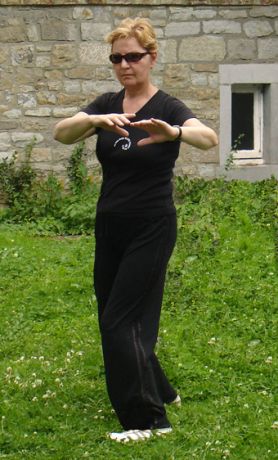
Practicing Tai Chi Chuan without understanding some Taoïstic principles
is like trying to fly without wings.
Not knowing the intent turns Tai Chi Chuan into a dance.
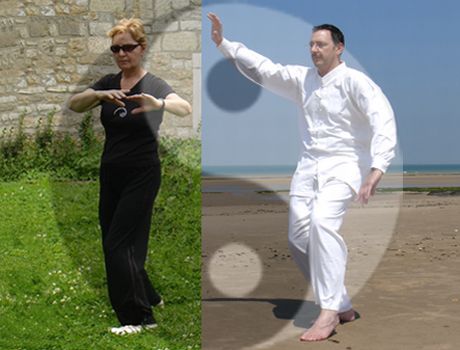
Yin Yang
You have to understand some yin-yang principles.
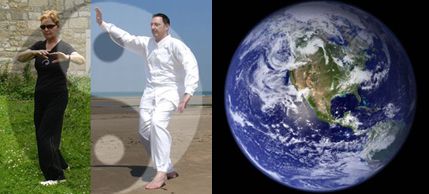
Everything in the universe sings the song of yin and yang.
 Tai Chi Classics: about yin and yang.
Tai Chi Classics: about yin and yang.
"Yin leads to Yang.
Drawing in leads to projecting out
Moving in leads to moving out
Interruption leads to connection
Breathing in leads to breathing out".
About the first principle
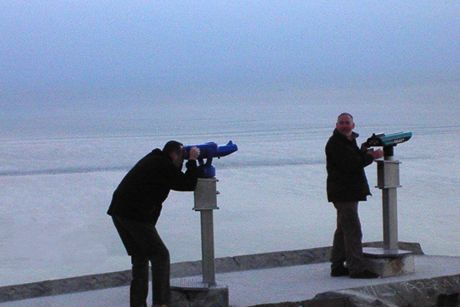
First principle: "All things are one".
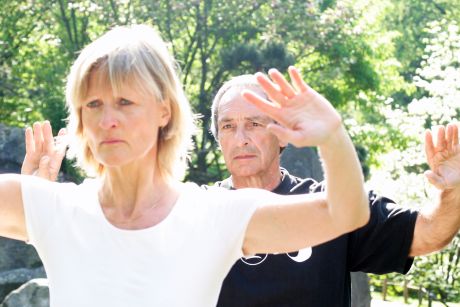
We are one with nature.

We respect her rules…
But at the same time nature is our teacher: she teaches without words,
she shows without deeds, she does without doing.
Tai Chi Chuan is the experience of the natural way.
It’s more than moving.
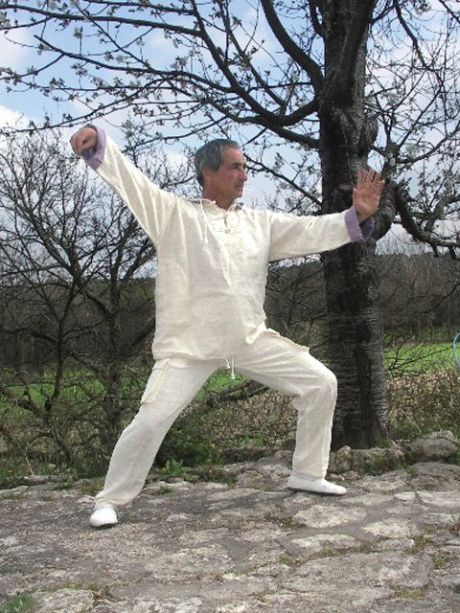
As if by nature all things are one.
People don't differ very much from trees.
Both absorb water, both secrete water.
Both have their "branches" in the air, both are rooted in the earth.
Both trees and people have to take a rest.
Trees take in carbon dioxide (CO2) and produce oxygen,
people, however, produce CO2 and take in oxygen.
That way people and trees are complementary, they take care of each other's balance.
A tai chi application follows the same partner principle.
As if by nature all things are one
but we need each other to become one.
To live is to breathe
To breathe bad is to live bad (Chinese proverb).
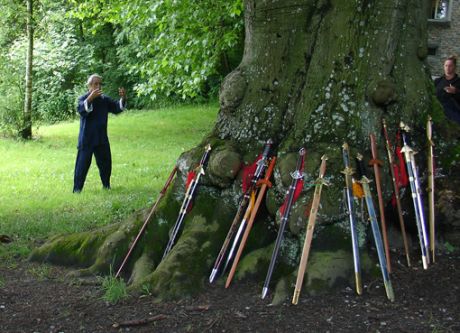
Big brother.
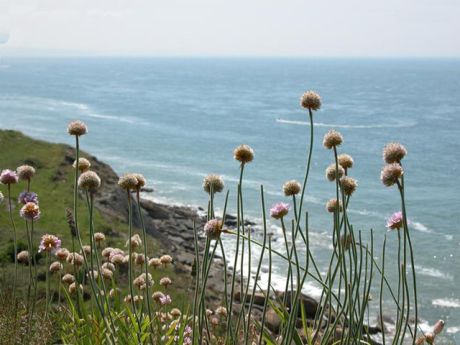
But:
A tree eats like a tree,
The sea eats like the sea.
And a dog eats like a dog
(Chinese proverb.)
All things are one.
We should think before we follow blind some Taoistic advice
"to turn away from civilisation".
We are not talking about isolation.
We are talking about balance and complementarity’s in nature.
 Tai Chi Classics:
Tai Chi Classics:
Everything is continuously revealing the negative and
the positive aspects of itself.
Everything in the universe is continuously
contrasting and complementing itself.
About the second principle
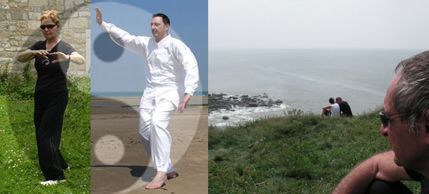
Everything is always changing.
An internal martial artist poses the same essential question as a sailor does:
“How do I deal with changes?”

"The wind blows where it will blow" (Chinese proverb)
We can change neither strength nor direction of the wind.
Nor can we change the altitude of the waves or the depth of the sea.
We can change the position of the sails and the direction of the rudder.
Yes we can.
But if we do not know where to sail to, then this will not be of any use to us.
This is Wuwei- Tzu-jan.
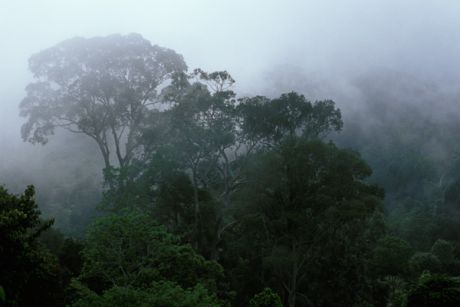
Everything is always changing.
Water gives rise to plants and wood is created.
This is the creative interplay of the Taoistic philosophy of the 5 elements (Seng cycle)
Taoistic philosophy divides nature into 5 elements:
Wood, Fire, Earth, Metal and Water
These 5 elements represent 5 forces in nature.
Taoistic 'psychology-medicine' divides people into 5 types:
Wood, Fire, Earth, Metal, and Water.
But;
Eech person contains five elements (mixed personalities).
Each person has a good and a bad site of personality.
Yin-Yang
 The creative Seng cycle:
The creative Seng cycle:
1° Wood represents the life force.
2° Wood burns and gives rise to fire.
3° From fire comes ashes (Earth)
4° Earth gives rise to Metal.
5° From the Earth-Metal Water springs up.
Water gives rise to plants and wood is created. This is the creative interplay of the 5 elements (Seng cycle).
 The weakening cycle
The weakening cycle
1° Water weakens metal
2° Wood weakens water
3° Fire weakens wood
4° Earth weakens fire
5° Metal weakens earth
 The destructive Ko Cycle:
The destructive Ko Cycle: 1° Wood destroys Earth.
2° Earth destroys Water.
3° Water destroys Fire.
4° Fire destroys Metal.
5° Metal destroys Wood.
This is the destructive interplay of the 5 elements (Ko cycle)
1) 


2) 


The laws of the 5 Elements take on great significance to martial as well as to healing aspects of Tai Chi Chuan.
Yin Yang
Wood----------Liver Wood------Gall Bladder
Fire---------Heart Fire--------Small Intestine
Earth------------Spleen Earth-------Stomach
Metal-------Lung Metal------Large Intestine
Water------------Kidney Water------Bladder
Well then; if we stimulate the Kidney meridian(Water), the Liver(Wood) will also stimulated because water creates wood.
But (in the martial applications) if we destroy the Kidney .....Et cetera...
All things are one and everything is always changing
 Taoistic classics: About changes.
Taoistic classics: About changes.
"Everything is always changing"
("I Tsjing" or "The Book of Changes")
About nature
Nature is nature. We all belong to nature.
Neanderthalians, Neo-Humeans, Humeans or Necessitarians:
welcome to Planet Earth.
The laws of nature are our natural laws.
Taoism is a Chinese study of the forces and processes that
create, produce and control all the phenomena in nature.

Taoism is a participating study of all the phenomena
in this material world.
Taoist painters convey the Taoist belief of the primary importance
of nature and of man's small, yet harmonious existence
within this (orderly) universe.
The contrasts with the empty unpainted areas are visual references to
the flow of the opposing forces of yin and yang.
They refer to the contrasts 'full/empty, dry/wet, dark/ light, small/ large'
young/ old, warm/ cold, soft/ hard,
the begin/ the end, open/ close
found in nature.
 Taoist classics: about nature.
Taoist classics: about nature.
Nature is not kind
It treats all things impartially.
The sage is not kind
And treats all people impartially.
Lao Tse
 Taoist classics: about nature.
Taoist classics: about nature.
Nature says only a few words
High wind does not last long
Nor does heavy rain.
If nature's words do not last
Why should those of man?
Lao Tse
About practicing Tai Chi Chuan

How do you do Tai Chi Chuan?
Like in nature there is no doing.
It is like the koan: "When you do nothing, what can you do?"
Internal strength will be there when you can stop all the doing.
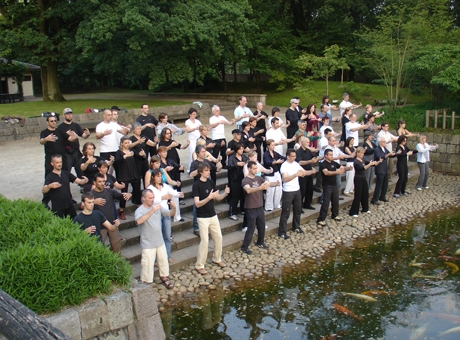
Basic gigong (3 circle zen stand):
How do you do gigong?
Let it be.
like in nature there is no doing.
You no longer stand in your own way
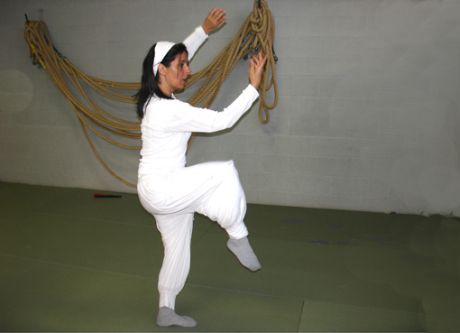
As you become competent,
you are less and less able to explain just how you do it.
You did it and it worked. This is Tzu- Jan.
Suddenly you find it easy to do things that were formerly difficult.
The doing fades and the outcome seems to happen by itself.
The doing is still there but you have forgotten to try.
You have internalised it. You no longer stand in your own way.
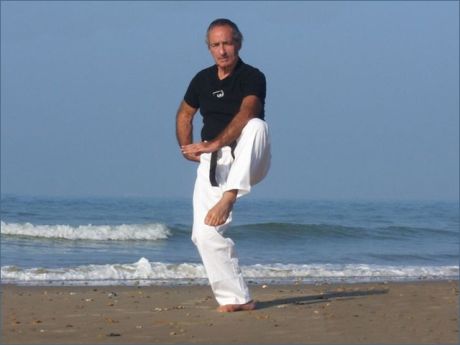
The doing fades and the outcome seems to happen by itself.
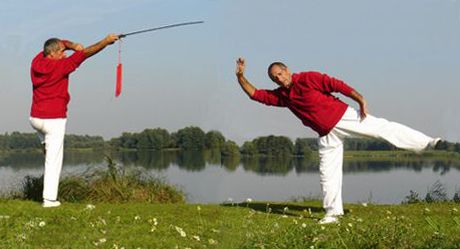
Internally relaxing allows your body to sink into the ground.
Below the hips, your body needs to be sunk and stable. Rooted in the earth.
Above the hips your body must be light and loose. Connected with heaven.
Taoism is a kind of longing to feel at home
between heaven and earth.
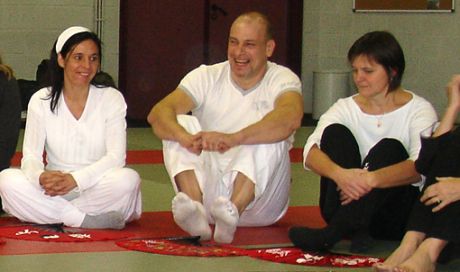
Things which are made are an assemblage of parts put together.
Things that grow shape themselves from within.
Tai Chi must flow spontaneously from you, like a smile.
You just did it and it worked.
This is Tzu- Jan.
About spirals
In mathematics:
A spiral is a curve which emanates from a central point
getting progressively farther away as it revolves around the point.
Trees grows in spirals.
Full power Tai Chi Chuan involves twisting and spiralling.
The Chinese term to describe this is ‘realing silk';
it looks like a wave undulating your body.
Realing silk is essential for health as well as for martial applications.
Beginners demonstrate just a wave or a circle.
Advanced students internalises this 'chin' to
a 'very subtle wavelike internal circular good feeling vibration'.
Winding silk (Ssan ni chin) is the reverse of realing silk( Ssan su chin)
Any muscular or mental tension,
Any over-stretching will limit or destroy this 'chin'.
Winding and realing silk must flow spontaneously to or from you.
You just did it and it worked.
It takes time master.
About your progress
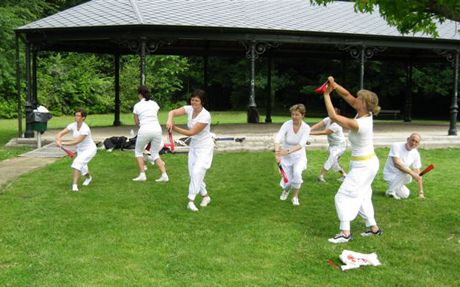
Tai Chi is the process, not the end.
Making mistakes is inevitable and healthy.
Your response to the mistake is what counts.
Remember: Tai Chi is not a "work-out process".
Tai Chi is a "work-in process".
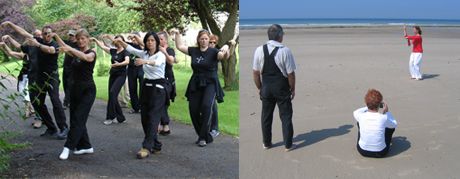
You cannot progress overnight from beginner to advanced
only by willing to be.
You cannot progress overnight in 10 lessons.
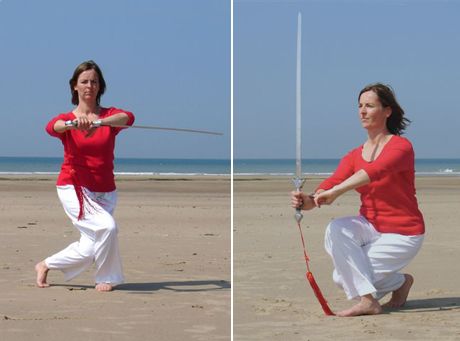
Style is a guide, not a jailer.
Each part of your body should be connected to every other part.
Style makes clear if you have integrated
the principles of yin and yang.
To know is to relate (Chinese proverb).
It is a characteristic of advanced Tai Chi players
not to do desperate things.
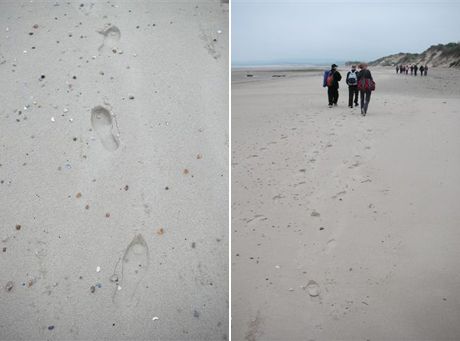
A journey of a thousand miles begins
with a single step (Lao Tse)
 Tai Chi Classics: about your progress.
Tai Chi Classics: about your progress.
Each part of your body should be connected
to every other part.
It requires years of practicing in order to achieve this ability.
 Failure is the key of success.
Failure is the key of success.
Ueshiba
About style
If the Real Stuff begins to sicken
and decay,
it used an enforced ceremony
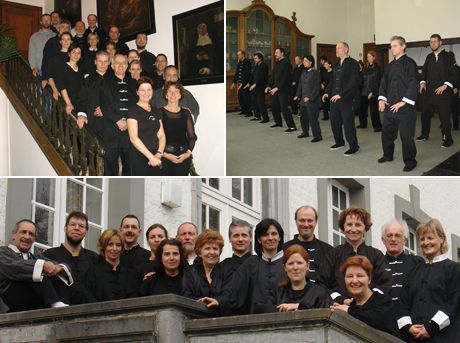
A Tai Chi Style is the way in which the Tai Chi tradition is said, done, expressed or performed in postures
with beautiful names as
'Grasp Sparrows Tail, Stork Spreads Wings, Carry Tiger and returns to Mountain, Repulse Monkey...'

The removal of martial explanations for Tai Chi postures has necessitated new visual imagery.
An example would be "Serve the Pizza".
If you really like it why not.
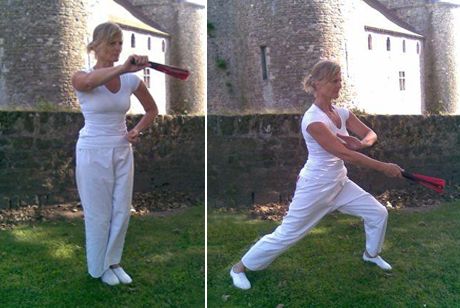
Large frame Tai Chi Chuan.
There are many Tai Chi styles.
A Tai Chi style, whatever is an expression of an inner energy flow.
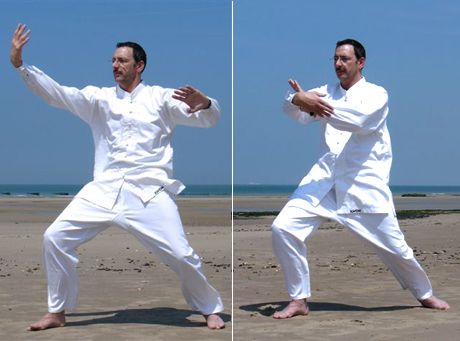
Yang style.
Yang Lu Chan - Yang Cheng Fu
large frame.
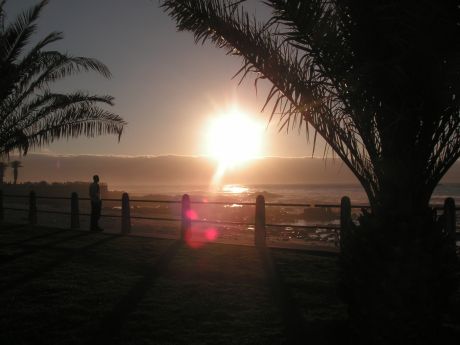
Big, fast, open and yang movements in de large frame are nice to see.
Nice to do.
But
each evening the sun shows the beauty of her own disaster.
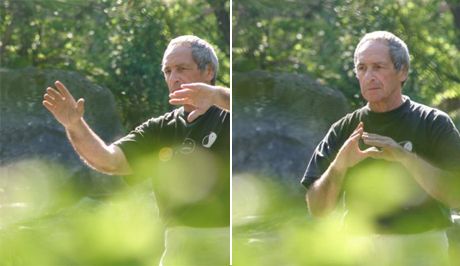
Small frame Tai Chi Chuan
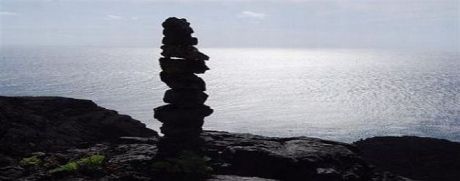
After years
As you become more competent you no longer need that large frame
because you have internalised(yin) your own energy flow.
That's what we call "small frame Tai Chi Chuan".
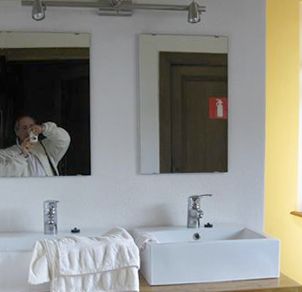
Small frame Tai Chi Chuan offers you a mirror.
It feels like coming home knowing your own little place between heaven and earth.
Knowing yourself.
It makes you humble.
Sometimes.
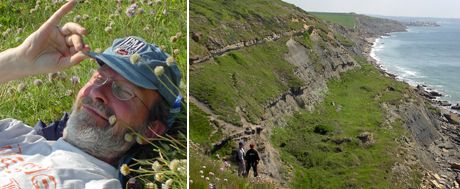
"Knowing your right place between heaven and earth."
That's the Taoistic definition of the word:
"Lifestyle".
 Tai Chi Classics: about style.
Tai Chi Classics: about style.
It is best to forget your own existence.
About your Tai Chi Form
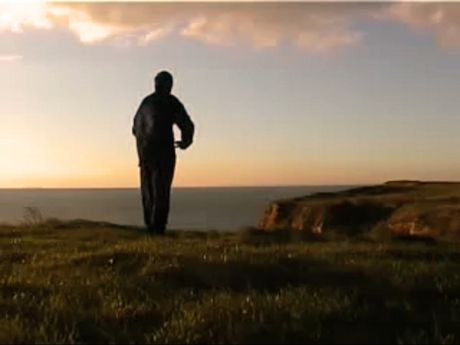
There are many different styles of Tai Chi
but most adhere to the same 13 basic principles.
The Yang Style is the most practiced style.
The Yang Cheng Fu form develops softness and strenght at the same time.
The Yang Lu Chan form or the 'Old Yang'
is the oldest version of the Yang Style.
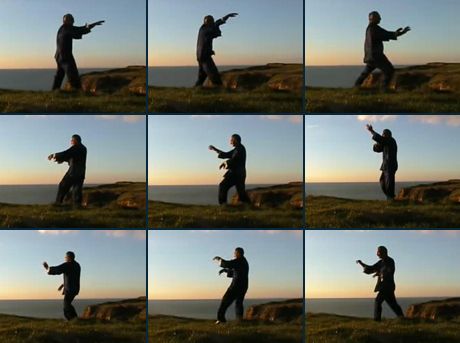
The13 basic principles of the most Tai Chi Styles are the same:
1. Sinking the shoulders and dropping of elbows.
2. Relaxing of chest and rounding the back.
3. Sinking chi down to dan tien.
4. Lightly pointing up the head.
5. Relaxation of waist and hip.
6. Differentiate between ying and yang, between empty and full.
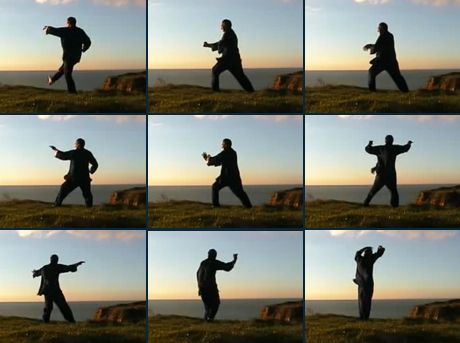
7. Coordination of upper and lower parts of the body.
8. Using the mind instead of force.
9. Harmony between internal and external.
10. Connecting the mind and the chi.
11. Find stillness within movement.
12. Movement and stillness present at once.
13. Continuity and evenness throughout the form.
 About the form.
About the form.
You start to learn the form.
Later on the form starts to teach you.
Erle Montaigue
About relaxation
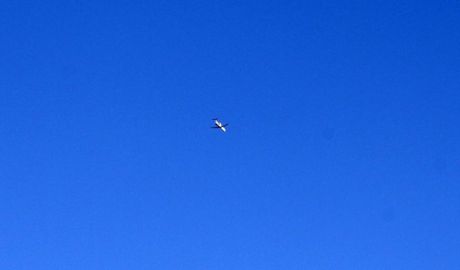
It is easy to become frustrated in a culture that embraced selfishness as the way of life
There are a vast number of escapes,
All predicated on the beliefs that live is too hard and that it demands relief.

People desperately think of relaxation as a way out,
as a retreat from the pain and pressures of our lives.
That’s nonsense.
True relaxation embraces life, does not declare 'time out' from it.
Some people fight against their own life;
To fight is to perpetuate conflict,
to 'try to relax', to 'do' is not to relax.
Relaxation is accomplished by doing nothing at all.
Make time to do nothing at all. Pamper yourself.
About meditation
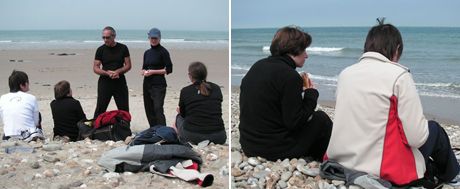
Tai Chi is not a 'work out', tai chi is a 'work in'.
Meditation is perhaps the only way
to change your behaviour
permanently.
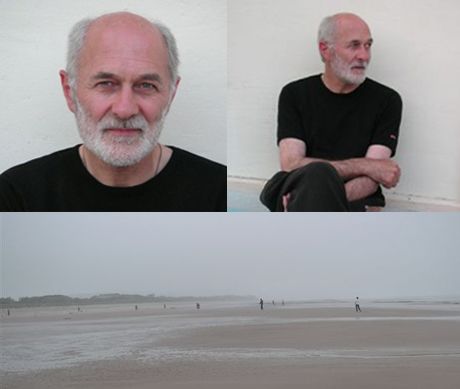
Meditation is not a method or a sort of strange exercise.
It is a condition of presence.
and awareness.

There are Taoist tools of meditating (tantien-breathing),
as well as tools to circulate the chi.
Like in Tai Chi the tongue should press lightly the roof of the mouth
making a bridge between Yin and Yang.
This bridge allows the chi to circulate.
Like in the Tai Chi form the spine should be held straight and vertically.
It allows the natural energy system (du mai) in and round
the spinal column to move freely up and down.
It helps the whole body acts as an antenna to pick up vibrations.
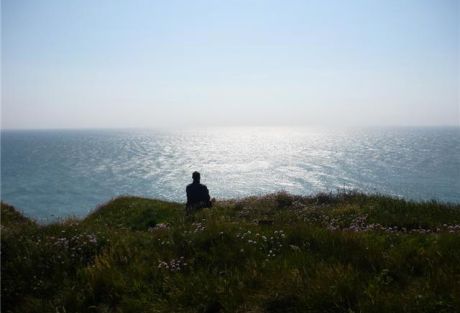
Taoist meditation in nature:
you have to be completely present in nature.
We are not talking about concentration,
what we want is the opposite of this.
Tao Tai Chi Chuan is concerned with attaining
a meditative state of inner stillness and harmony with all things.
When we lose our conscious thoughts
our stress and worries will go with them.
Stillness and quietude will take their place.
 Tai Chi Classics: about meditative Tai Chi Chuan:
Tai Chi Classics: about meditative Tai Chi Chuan:
"You have to be completely present
but
presence can never be forced."
About fullness and emptiness
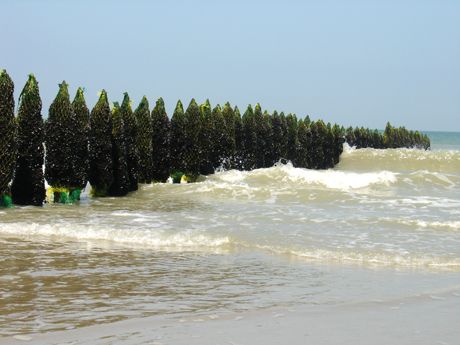
Nature is our teacher:
we can understand fullness and emptiness
by studying wind and water.
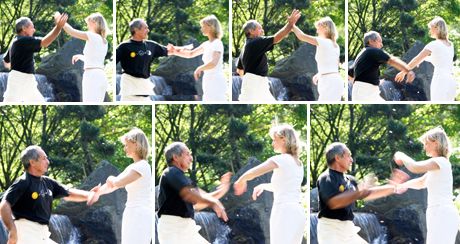
Stay in your center.
When your mind is empty the yang returns automatically
to its beginning.
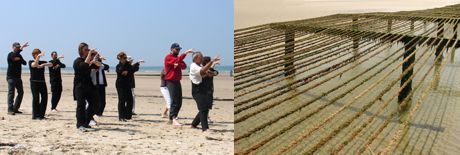
When your mind is empty the yang returns automatically
and cyclically to its beginning.
Yin attains fullness and gives place to the yang.
This is called exchanging negative (yin) and positive (yang).
The 'dead point' is always the changing point.

This is one of our best young students,he's also a talented martial artist.
But he has a little problem:
sometimes his head is full of the strangest things.
If his head is 'full', the yin cannot give place to the yang.
In our school all of us have a similar problem.
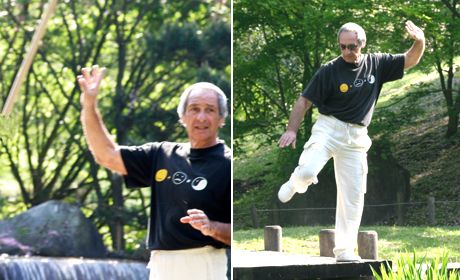
Your mind should be empty.
If mind and internal energy can be freely exchanged,
then there is much satisfaction in performing smoothly and dynamically.
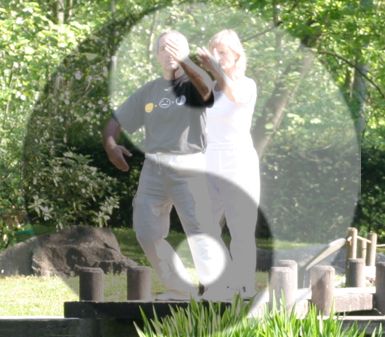
Only when your mind is empty the yin can give place to the yang
and automatically
the yang can give place to the yin.
Only when your mind is empty yin and yang can be exchanged freely
and automatically.
Nature is our greatest teacher.
Automatically.
This is Wuwei-Tzu-jan.
This point between yin and yang,
this turning point between coming and going,
This dead or zero point, this empty or changing point
"This meeting point,
that' s the only place where we can really meet each other."
Botho Strauss
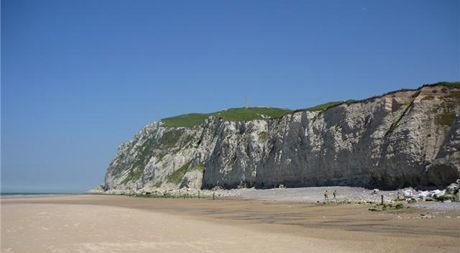
The major difference between Tai Chi Chuan and other martial arts
is the development and use of emptiness and fullness.
Tai Chi power can go deep into an opponent's body in a focused manner.
The practioner penetrates into acupuncture points to pass his power into the meridians.
From the meridians, this power goes into the particular internal organ.
Wind and water are powerful elements
We can understand fullness and emptiness by studying wind and water.
 Tai Chi Classics: about your mind
Tai Chi Classics: about your mind
"Your mind should be empty".
 Taoistic classics: about fullness and emptiness.
Taoistic classics: about fullness and emptiness.
The motion of the Way is to return.
The use of the way is to accept
The soft overcomes the hard. The yielding overcomes the strong;
Every person knows this
But no one can practice it.
Lao Tse
About happiness
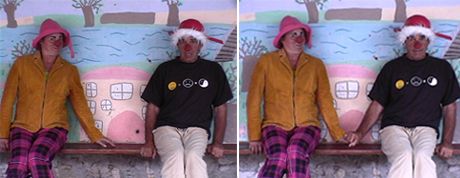
We all want to be happy
even when volatile spirits prefer unhappiness.
Taoists believe that nobody is perfect happy.
Well then:
Be nobody.
Fame is food that dead men eat.
At the end we all end up with nothing (Chinese proverb).
 Taoistic classics: about happiness and harmony
Taoistic classics: about happiness and harmony
Embracing the Way, you become embraced;
Breathing gently, you become newborn;
Clearing your mind, you become clear;
Nurturing your children, you become impartial;
Opening your heart, you become accepted;
Accepting the world, you embrace the Way.
Bearing and nurturing,
Creating but not owning,
Giving without demanding,
This is harmony.
Lao Tse
 Taoistic classics: About happiness
Taoistic classics: About happiness
J'ai décidé d' etre heureux
parceque
c'est mieux pour la santé.
Voltaire (1694-1778)
About fear
Our deepest fear is not that we are inadequate.
Our deepest fear is that we are powerful beyond measure.
It is our light, not our darkness that most frightens us.
We ask ourselves: who am I to be brilliant, gorgeous, talented, fabulous?
Actually, who are you not to be?
You are a child of God.
Your playing small doesn’t serve the world.
There is nothing enlightening about shrinking
so that other people won’t feel insecure around you.
We are all meant to shine, as children do.
We were born to make manifest the glory of God that is within us.
It’s not just in some of us, it’s in everyone.
And as we let our own light shine,
we unconsciously give other people permission to do the same.
As we’re liberated from our own fear,
our presence automatically liberates others.
MARIANNE WILLIAMSON
About partner work
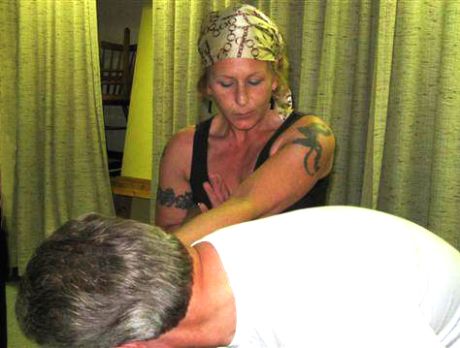
An internal martial artist has a lot of physical
and mental partner work to do.
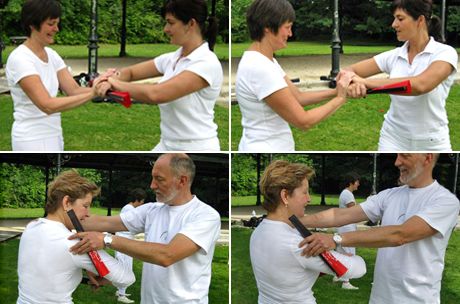
We regard Tai Chi partnerwork also as a stress management.
It is essential to remain calm when faced with extreme,
dangerous or normal situations.
Self defence training is perhaps the best form of stress management.
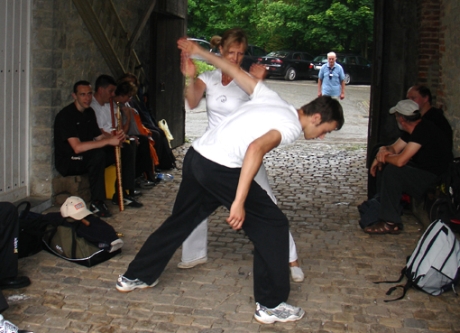
Tai chi competition is a strange thing.
I know many people who are very good at martial arts.
No great martial artist I know will say:" I am the second best".
Mostly they think they are the best.
Even if they are good at what they do, they create a lot of unnecessary conflicts.
It's better to be the second best.
Words as: 'the greatest or the best' are 'too great or 'too good' for simple human beings.
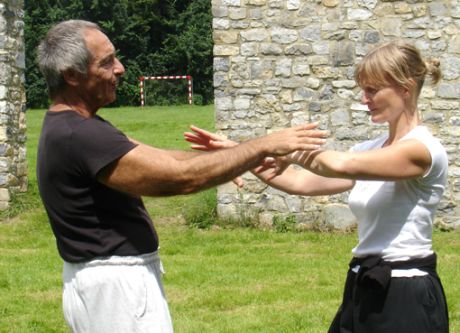
Partner work offers you a mirror that tells what sort of person you are
in relationship with someone else.
Work with your partners, not against them.
If they are finding it too difficult, try to gently help them,
if they are finding it to easy, try to gently challenge them.
Life is not the survival of the best.

Every empty yin can sense every hard yang.
But a hard yang can never sense a soft empty yin.
For self defence you need to be sensitive.

'Full hard yang' against 'Soft empty yin'.
 Tai Chi Classics: About partner work;
Tai Chi Classics: About partner work;
Your body's sensitivity should be such that you are aware
of the tiniest feather brushing against your skin.
Even a mosquito finds no place to land on you
without causing you to move.
 Those who use force soon exhaust themselves.
Those who use force soon exhaust themselves.
And what can be accomplished with exhaustion and struggle?
Lao Tse
About Tai Chi self defence
Self defence is whatever you need to survive.
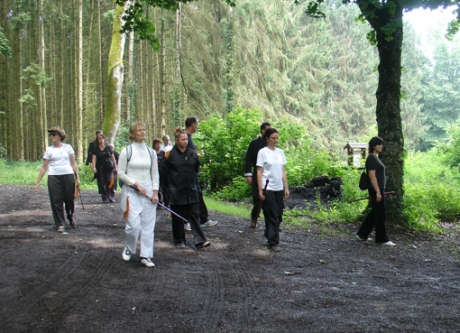
Tai Chi Chuan self defence:
You don’t need competition.
Competition is a confrontation between egos,
a question of your lower chakras.
You don’t need a master or even a teacher.
You don’t need your wuchu forms or your hundred ways to kill.
For self defence you need simple things as a strong physical,
a mental and a spiritual structure.
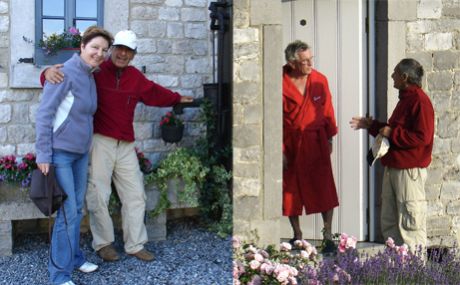
Self defence is first of all a defence against myself.
Against
my own wrong ideas.
Against
my own wrong attitudes.
Self defence is not a competition between egos.
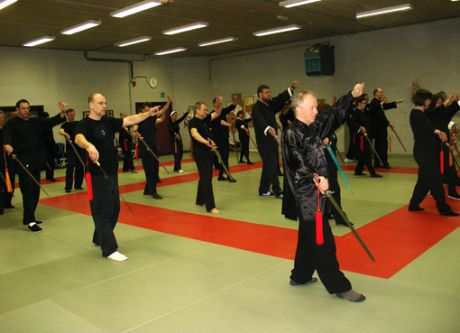
Tai Chi Chuan entails physical, intellectual, spiritual,
medical and mental martial tools.
In self defence
there are no "useless martial tools."
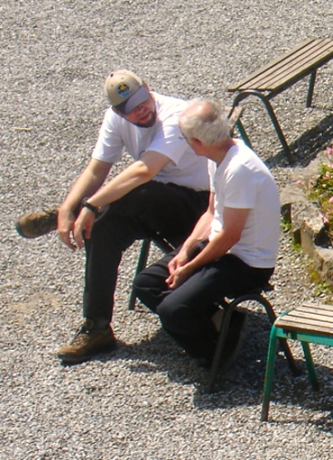
"Some people tell you to fix your attention on one thing to keep it there.
This is not the way of Tai Chi Chuan.
You do not see with your eyes. You see in your mind.
You need to be sensitive.
You need to be capable of "listening" to what is happening.
You need to adapt.
Self defence involves total immersion in what is happening.
This means no dreaming in the future or worrying about the past.
Our drills cultivate these senses.
If they did not, what purpose did they serve?
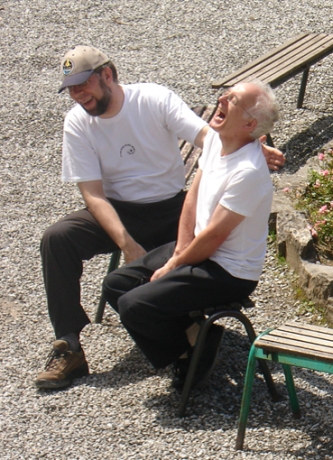
"Self defence is more than application.
Applications are relatively easy to learn but self defence is serious.
Consider the underlying purpose of self defence.
For your sister is like you, she wants to be happy.
For your brother is like you, he wants to be happy.
Peace occurs when conflict ends.
Self defence is serious, not easy to learn.
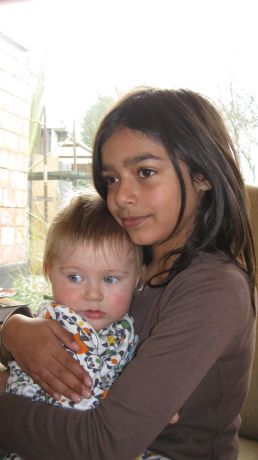
Rani meets Onno.
Consider the underlying purpose of self defence:
All of us
We all want to be happy.
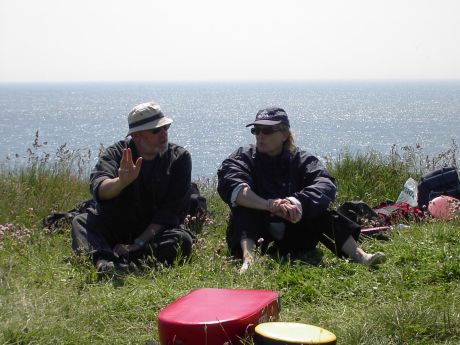
Self-defence is serious. Why?
Just like animals people also try to survive life physically
as long as possible by trying to defend themselves
in as many fields as possible.
Not easy to learn.
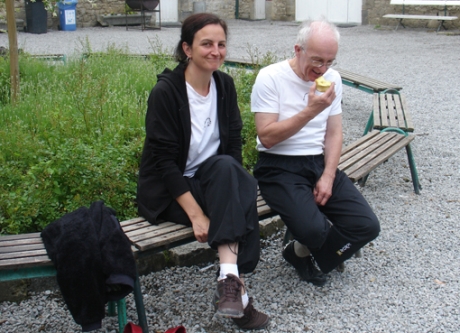
Learn
about the Yin-principle from the Yang-principle
Learn
about the Yang-principle from the Yin-principle
Self defence
entails learning processes
 Tai Chi Classics: about self defence
Tai Chi Classics: about self defence
Make your spirit peaceful and your body calm.
Pay attention to your mind at all times.
About learning
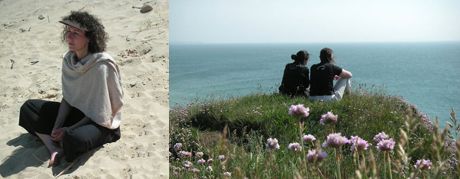
You can only learn by observation.
Your learning will never end.
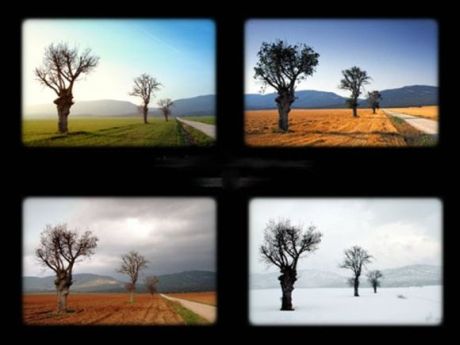

Be like the lotus growing from the deepest mud:
Learn about silence from the talkative
Learn tolerance from the intolerant
Learn kindness from the unkind.
Tashimoto

Don't be 'creative', your famous 'creativity' doesn’t exist.
You can only learn by observation.
There are many levels of observation.
Your learning will never end.
There are two kinds of observation.
First the observation of energy. Second the observation of the spirit.
Energy and spirit refer to the inner constituents of body and mind.
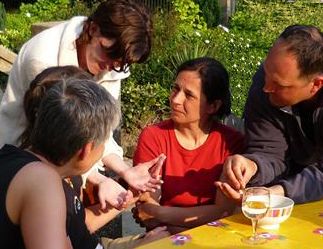
The time of life is short: to spend that shortness basely were too long.
W. Shakespeare.
 Taoistic Classics: about learning
Taoistic Classics: about learning
The finger that points to the moon is not the moon.
Tswang Tse
At the age of seven I was Napoleon. Not bad.
Now I think I am myself, that's better.
S. Dali
Each of us is in fact what he is
almost exclusively by virtue of his imitativeness.
Now I think I am myself, that's better.
S. Dali
Each of us is in fact what he is
almost exclusively by virtue of his imitativeness.
 Taoistic classics: About knowledge:
Taoistic classics: About knowledge:
To know without knowledge (Lao Tse)
About your martial tools
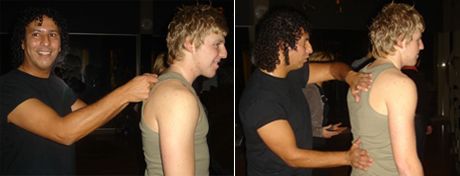
Some people say there is a world of difference between training
Tai Chi for health and training it for self defence.
As far as I think about it now: this is not my opinion.
Healing and self defence are the same things.
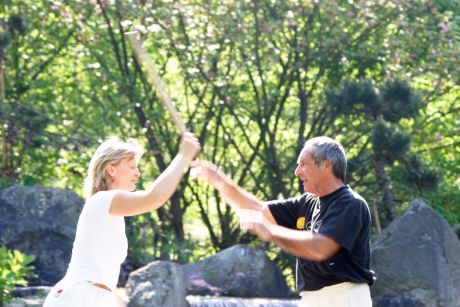
Tai chi chuan contains real physical ‘street fighting tools’.
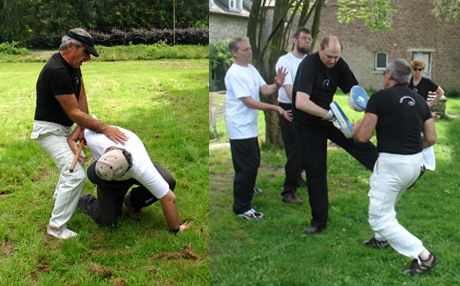
Be prepared for a real confrontation.
An explosive Fa Jing is your greatest fighting tool.
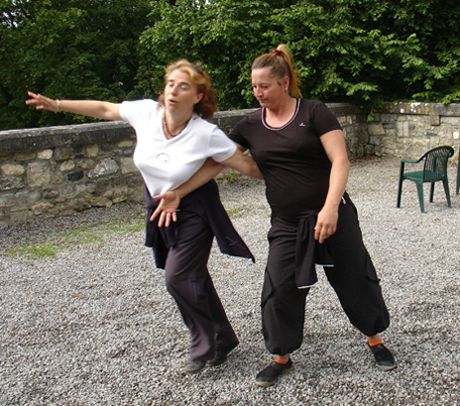
Soft Fa Jing:
Powerful without using external power.
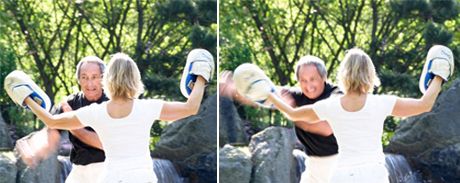
Speed and explosivity are two different things
Speed is a manifestation of an external power
Explosivity is a manifestation of an internal power.
 Tai Chi Classics: about your martial tools
Tai Chi Classics: about your martial tools
Speed does not determine victory
 Tai Chi Classics
Tai Chi Classics
The chi must be drummed and vibrated.
(Chang San-feng?)
The question is:
How to increase inner energy (= chi),
transform it into inner power (= jing)°
How to project your inner energy outward?
How?
°Jing is a high-frequency vibration controlled by the mind and integrated by mind/body
coordination into an ultra-fast wave-like unit. Or, (in the martial sense) into an
explosive unit (fa jing).
°There is also a difference between physical speed and mind speed on the other hand.
The 'high speed of the mind' can, for example treat a period made of millions of years as a mere moment.
About Fa Jing
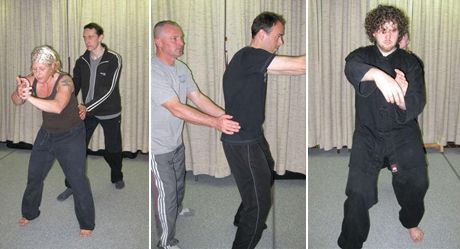
Preparatory work leading up to Fa Jing.
Fa Jing is an explosive energy expression.
Fa Jing allows you to release your energy (jing) abruptly (fa).
It is an area of study in its own right. Medical as well as martial.
Your Fa Jing can be also dangerous for yourself.
It takes time to master
Fa Jing is a violent yang movement with some less or more yin aspects.
For example:
You may think circular (yin) while striking linear (yang),
or you may think linear while striking circular.
What matters is the effect of your strike.
Downward, backward, forward: these 3 vectors are necessary to generate an explosive Fa Jing.
°The chi is sunk down into the Dantien (downward)
°The rear leg is mentally pushed back (backward)
°The power is applied forward onto the palm (forward)
Fa Jing is an area of study in its own right.
Your body should be free and loose,
your mind should be empty and free from 'emotional shit'.
It takes time to master.
Tai Chi Chuan 'loose boxing': you should be in a meditative state.
Not only your fist should be loose
your entire body should be soft, loose, sensitive,
relaxed, free and open.
Open -close -open -close -open:
Keep in mind:
without a correct 'yin-yang in your hands and feet'
you cannot execute a (real) Fa Jing strike.
It takes time to master.
Your fist should be like an arrow and your body like a bow.
The real power comes from your 'arrow -bow' rather than from your arrow.
Your 'arrow -bow -fist', not your fist hits the target
Your panel password: control.
It takes years to master the physical as well as the mental aspects of Fa Jing.
 Taoistic Classics: about drawing a bow.
Taoistic Classics: about drawing a bow.
Is the action of nature not unlike drawing a bow?
Lao Tse
About your medical tools
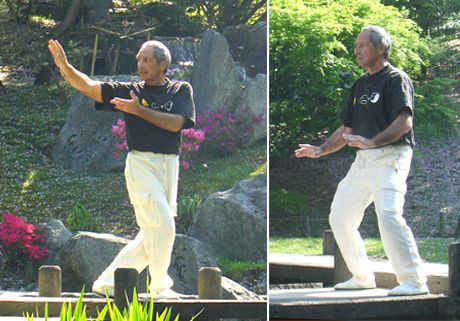
Tai Chi Chuan is a self healing process.
Healing yourself is the same thing as defending yourself.
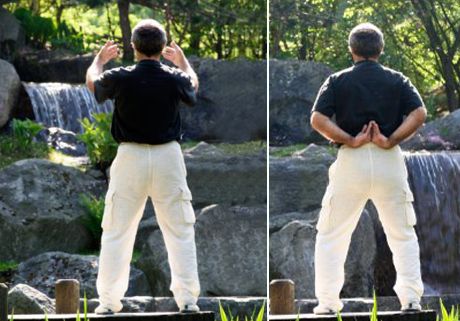
Gigong (Chi Kung) is your very powerful extra medical tool.
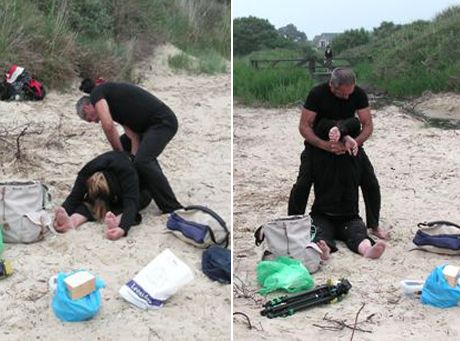
Tai Chi Chuan is also a self healing process.
Gigong, tuina, acupuncture etc are extra- tools.
About your mental tools
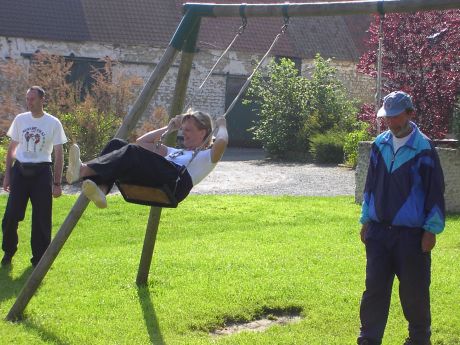
But people also have to survive this life mentally.
That's why the curious and playful child in ourselves should not die too early.
That child can only stay alive if it also possesses an old man's wisdom.
Taoism refers to "the old child".
That way the circle is closed.
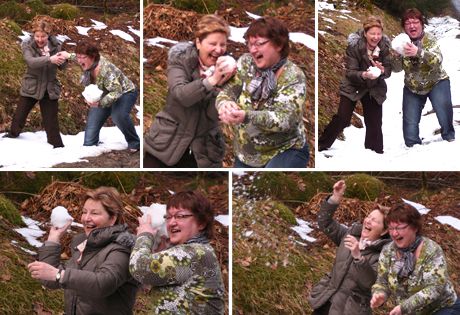
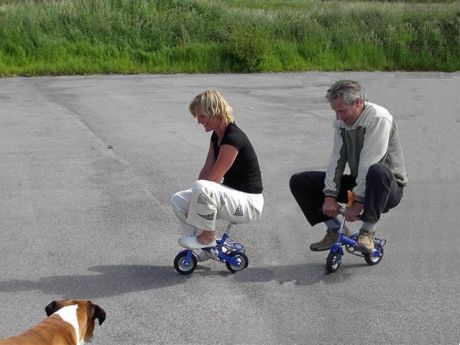
Very Special Old Children.
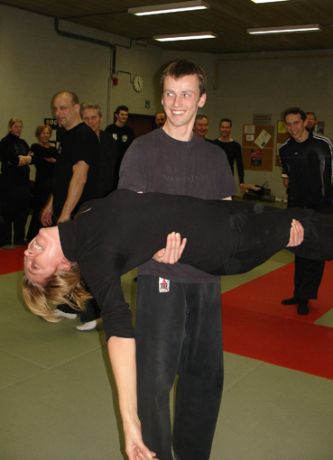
The playful child in ourselves should not die too early.
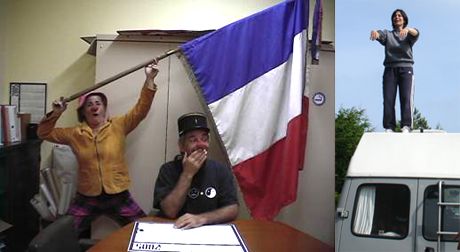
My students and me.
That child can only stay alive if it possesses an old man's wisdom.
Taoism refers to "the old child".
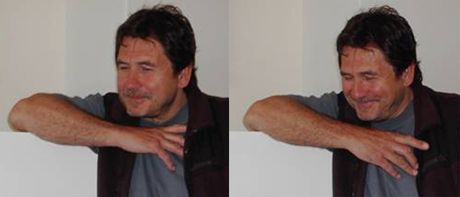
In that context self-defence can offer some tools.
Some instructors only think of fighting tools.
But this is not the way of Tai Chi Chuan :
humour is a tool too. Not being able to laugh;
not knowing why;
not knowing what to laugh about;
not knowing when
took many lives.
 Taoistic classics: About the old child.
Taoistic classics: About the old child.
Lao Tse (Lao Zi) is called "the Old Child".
"Child" represents the beginning of life. "Old" represents the end of life.
Normal people start at the beginning of their life. They end up at the end of their life.
But in this case "Old Child" demonstrates the rejection of ending
and the continuous return to the beginning.
That way, both, old and young at the same time symbolises
the newly born,
the returner, the divine child, the eternal, the creator.
Lao Tse, the old child (a similar idea in Christianity (little Jesus)
and in Buddhism (little Buddha).
Move on, in Tai Chi Chuan there is no end or no beginning.
Each begin represents an end. Each new end represents a new begin.
That's what the Taoistic classics mean by "The Old Child".
About certainty and uncertainty
To have doubted one’s own principles is a good thing.
As often as a study is cultivated by narrow minds,
they will draw from it narrow conclusions.
"When we meet each other, the one thing we know for certain is
that one of us is born before the other.
That one of us must die before the other."
(Jacques Derrida)
that one of us is born before the other.
That one of us must die before the other."
(Jacques Derrida)
About peace making and peace keeping
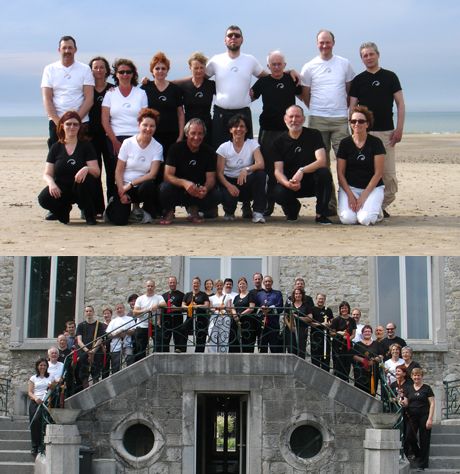
A martial artist is not a universal soldier.
A martial artist is a peace keeper and a peace maker.
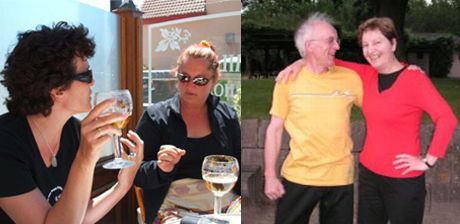




Diversity is a hallmark of a healthy ecosystem.
Does that mean we should tolerate every thing.
A tai chi school must be a world full of people standing for different things,
all able to find ways to work together to make all their visions come true.
Does that mean we should tolerate every thing.
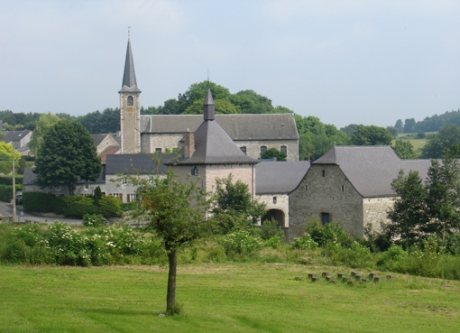
Many people create a lot of unnecessary conflicts:
Yin against yang. Heaven against earth.
Young against old; Old against young.
Noise against silence. Hard against soft.
Fast against slow. Body against soul.
Useful against useless. Man against woman.
God against man and man against God.
Man against nature. God against nature.
Full against empty. Young against old. Culture against nature.
North against south. Heart against brains.
Black against white. Blue against red and red against yellow.
Me against you and you against me.
Every body against every body and every body against me.
Many people create a lot of unnecessary conflicts.
They also say that they are 'peaceful'.
They are against the war.
But:
This is the definition of total war.
A martial artist is not a universal soldier.
 Tai Chi Classics: about a peaceful mind.
Tai Chi Classics: about a peaceful mind.
"Peaceful, free and graceful like the movements of the eagle
that glides on the wind
But
Alert and able to swoop instantaneously
to pluck a rabbit from the ground".
About soldiers and internal martial artists
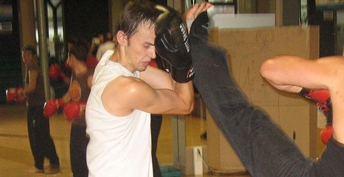
The essential difference between a soldier and an internal martial artist?
A soldier interprets new situations in terms of win or lose.
This appears simple, but in fact it is overly simplistic.
Internal martial artists, on the other hand, see new situations as a game.
Each new situation presents opportunities to gain new experiences.
Win and lose are subordinate to personal growth.
This is not simplistic - it is simple.
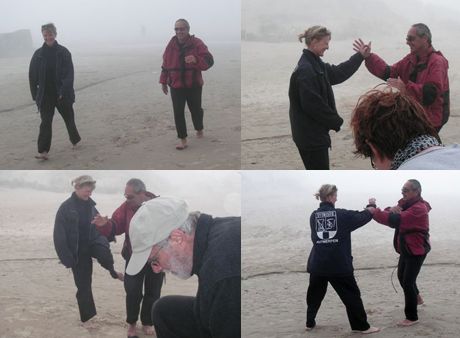
To see new situations as a game.
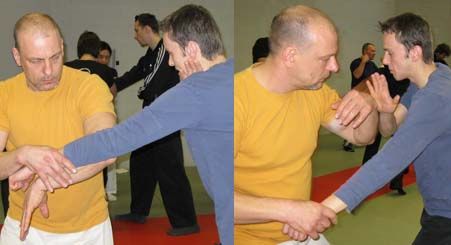
Win and lose are subordinate to personal growth.
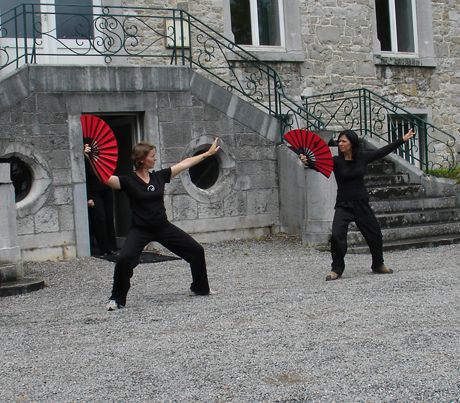
(Photo:Tai Chi Fan- shadow fighting)
Being a loser is not so easy.
The problem is that you are not the winner
But a good loser is always a winner.
The winner does not take it all.
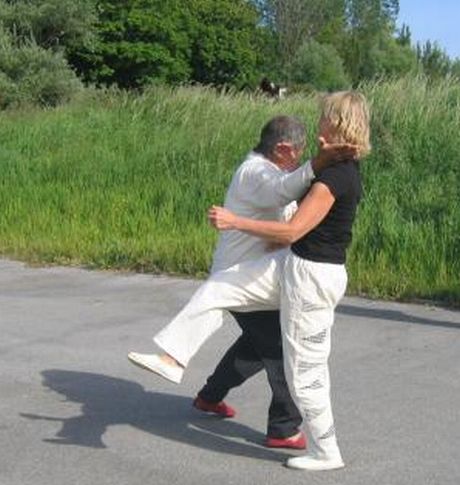
If you want to be happy, then be it. (Chinese proverb)
Well then: if you want to 'master' a martial application, then 'master' it.
If you want it to succeed, then let it succeed.
If you want to do it, then do it.
If necessary, pretend to master the application,
as if you've been doing it for years.
There's a good chance that it will succeed.
The difference between success and failure is often in your head.
This does bring risks of overestimating your capabilities.
But:
Those who are not prepared to take this risk will risk never succeeding in a single application.
Self-defence always entails a risk:
You have to be prepared to not relinquish control of your own destiny.
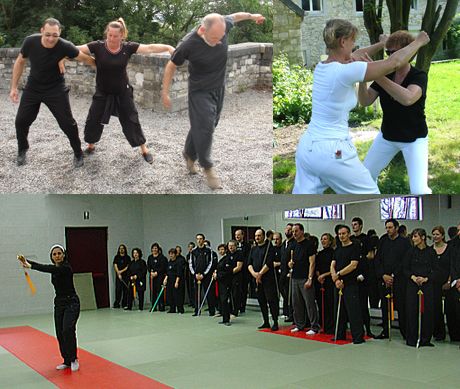
Self defence always entails a risk:
You have to be prepared to not relinquish control of your own destiny.

You have to be prepared to not relinquish control of your own destiny.
About stop and start
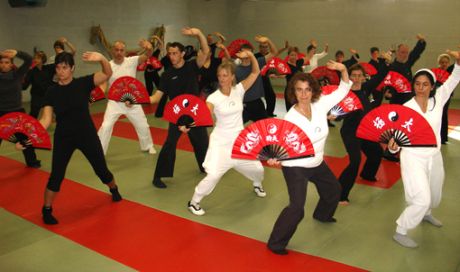
Stop and start:
Tai Chi self defence is also a question of stop and start.
First you should exercise your mind, then discipline your body
When Tai Chi is in motion the positive (yang) and the negative (yin) separate.
When Tai Chi stops yin and yang integrate.
In the Tai Chi forms you also learn
when to stop
and
when to start.
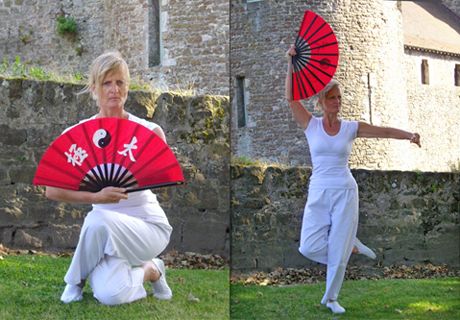
The beauty of inner stillness.
 Tai Chi Classics: about stop and start.
Tai Chi Classics: about stop and start.
When in stillness you should be as a mountain
When in motion you should move like the water
of the river.
 Tai Chi Classics: about stop and start.
Tai Chi Classics: about stop and start.
Bear in mind that once you move, everything should be in motion
When you are still
everything should be in stillness
About water
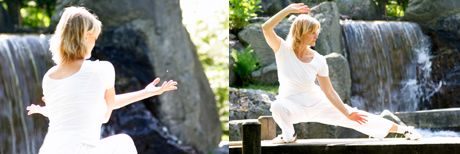
When in motion you should move like water.
 Taoistic Classics: about water.
Taoistic Classics: about water.
The best of man is like water
Which benefits all things, and does not contend with them
Which flows in places that others disdain
Where it is in harmony with the way.
Lao Tse
Well then:
Lives within nature
Thinks within the deep
Gives within impartiality
Speaks within trust
Govers within order
Crafts within ability
Acts within opportunity
About the universal scale of all things
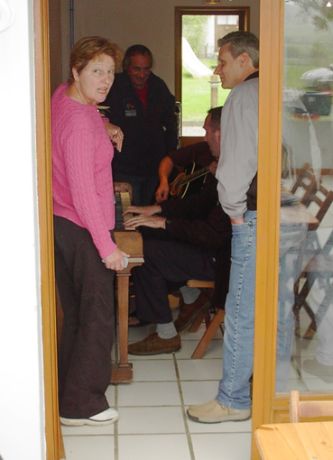
"Everything in the universe sings the song of yin and yang."
(Chinese proverb).
Joseph Campbell:
“When we kill the song, we kill the bird”
Campbell did not say: "When we kill the bird, we kill the song”.
This means that the song is smarter than the bird that sings the song.
The song even knows 'when' the bird has to sing the song.
Automatically, spontaneously and without any effort:
this is Wuwei- Tzu-jan.
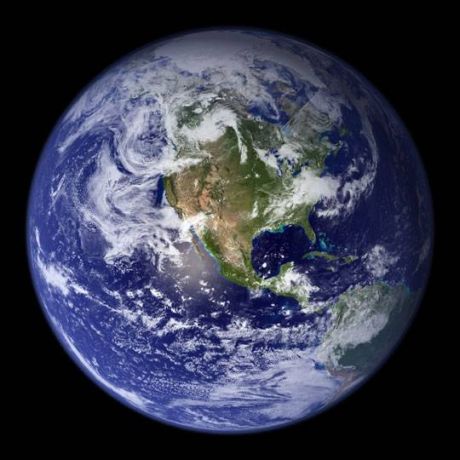
Everything in the universe sings the song of yin and yang.
When we kill this song, we kill the bird that sings this song.
About Wuwei-Tzu-jan
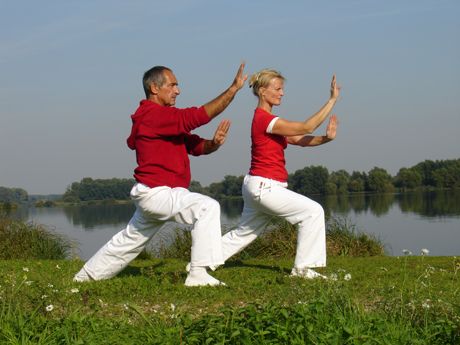
The river knows when the river has to flow.
Automatically, spontaneously and without any effort.
Well then: Go with the flow,
don't push the river, it flows by itself.
This is Wuwei- Tzu-jan.
 Taoistic Classics: about the river
Taoistic Classics: about the river
The river carves out the valley by flowing beneath it
Thereby the river is the master of the valley.
Lao Tse
 Taoistic Classics: about pushing the river
Taoistic Classics: about pushing the river
Who recognizes his limitations is healthy
Who ignores his limitations is sick.
Lao Tse
About the secrets of Tao-Tai Chi Chuan
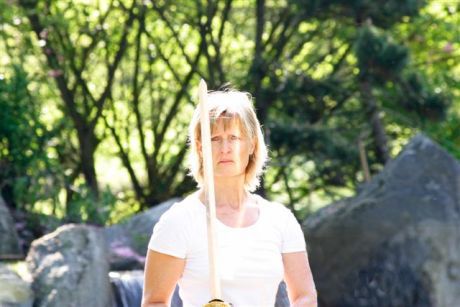
Secret number 1:
Our patience will achieve more than our force.
Everything is difficult before it becomes easy.
Patience is your greatest treasure (Chinese proverb).
Secret number 2:
There are 3 ways to learn Tai Chi Chuan:
1° Exercise.
2° Exercise.
3° Exercise.
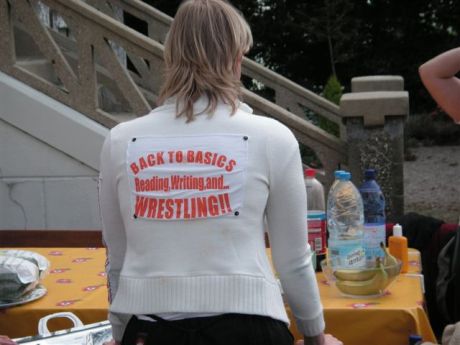
Secret number 3:
Back to basics.
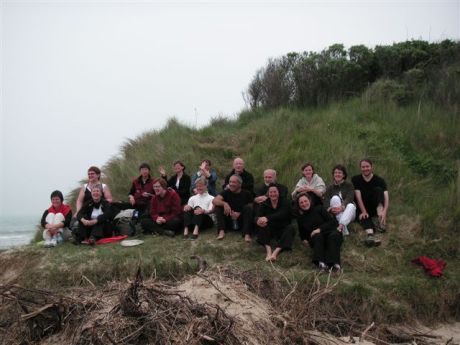
Secret number 4:
Be happy,
nothing is under control.
Secret number 5:
Keep it simple.
 Taoistic Classics: About Utopia
Taoistic Classics: About Utopia
Let your community be small, with only a few people;
Keep tools in abundance, but do not depend upon them;
Appreciate your life and be content with your home;
Sail boats and ride horses, but don't go too far;
Keep weapons and armour, but do not employ them;
Let everyone read and write,
Eat well and make beautiful things.
Live peacefully and delight in your own society;
Dwell within cock-crow of your neighbours,
But maintain your independence from them.
Lao Tse
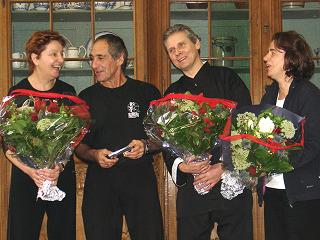
We can read sophisticated books to understand the secret of
Tai Chi Chuan or the secrets of Taoism.
No problem.
But according to me there is no secret.
There's just the secret behind a secret.
A secret is too kind a word;
it's a euphemism for something I don't understand,
for something I don't understand yet.
The way I think about it now Taoism is only a kind of longing,
it's a wish to feel at home,
always and everywhere.
For some people Tai Chi Chuan can be a brilliant tool
of Taoism for on the road.
The truth can never be bigger than my head and than my heart,
which has to understand that truth.
Take care of yourself, may God bless you and thanks for visiting us.
Walter.

webmaster Ria
Last updated: 18 juni 2009
Copyright ©Walter Marsoul 2009. All Rights Reserved.